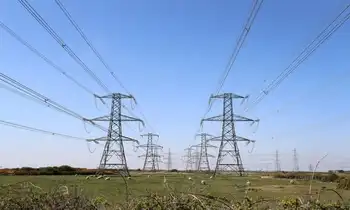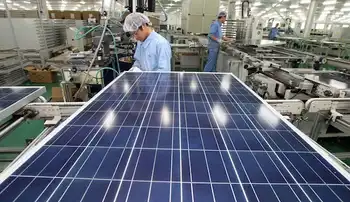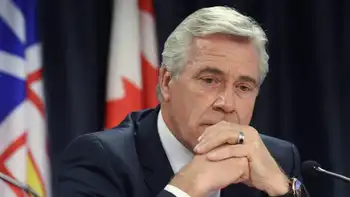U.S. not seen on board for 2050 emissions cut
TOKYO, JAPAN - Japan has yet to persuade the United States to agree to a global goal of cutting greenhouse gas emissions by 50 percent by 2050 at next month's G8 leaders' summit, a Japanese government source said, raising the prospect of a diplomatic failure for Prime Minister Yasuo Fukuda.
Japan wants the Group of Eight summit on July 8 and an expanded meeting the next day with eight other major economies including China to build momentum for U.N.-led talks on a framework for cutting carbon emissions after the Kyoto Protocol's first phase expires in 2012.
But doubts persist as to whether and how far the G8 will be able to go beyond an agreement reached at last year's summit in Germany, where they said they would seriously consider a global goal of halving the world's greenhouse gas emissions by 2050.
"It seems to me personally that if Japan fails to mention '50 by 50', maybe Prime Minister Fukuda will face a very strong argument from the media, the general public, and opposition parties," a Japanese government source said.
The source said an agreement on a shared long-term goal was by no means a done deal, although there was still hope that President George W. Bush would commit to the target.
Comments by U.S. officials have cast doubt on whether the G8 would issue its own statement on climate change at the summit in Toyako, northern Japan, although Tokyo is pressing for one.
"From the Japanese viewpoint, we must have a G8 statement on climate change," the government source said.
Washington wants the main forum for emissions cuts to be the Major Economies group, which it set up last year to include big emerging economies such as Brazil, China and India with the G8.
Britain's climate envoy also cautioned against expecting a big breakthrough in the Toyako talks on how to fight the global warming that not only causes seas to rise and glaciers to melt but accentuates rising global food and fuel prices.
"We're not going to have a major breakthrough in the global effort on climate change because the conditions at the moment are not conducive," Britain's special representative for climate change, John Ashton, told a news conference in Tokyo.
Ashton said he expected the "beginning of a sense that we have a shared goal, a long-term goal," to emerge at the summit but added: "We're still some way from having agreement on that."
Last December, 190 countries agreed on a two-year U.N.-led negotiating process to forge a successor to the first phase of the Kyoto Protocol on cutting carbon emissions.
Those talks will culminate in Copenhagen in December 2009.
The Kyoto pact's first phase obliges many industrialized nations to curb emissions between 2008-12, and the goal for the next stage is to bind all nations to reductions.
Big emerging economies such as China and India want rich nations to take bold steps first, including setting midterm targets for reducing emissions by 2020 or 2030, a step already taken by the European Union.
But Washington insists it will only agree to binding targets if big emerging emitters also come on board, while Fukuda has said the G8 was not the right forum for agreeing midterm targets.
Negotiators from the Major Economies Meeting group who met over the weekend in Seoul failed to agree on a draft statement mentioning numerical targets for either a long-term global target to cut emissions or midterm goals for developed countries.
A draft statement by the group, a copy of which was seen by Reuters, said participants recognized the need for "deep cuts" in global emissions and urged serious consideration be given to "ambitious scenarios" outlined by a U.N. climate change panel.
Those scenarios call for cuts of 50-85 percent or 30-60 percent, by 2050.
The draft - expected to form the basis of a statement by the Major Economies leaders - also said major developed economies would set mid-term goals while major developing economies would take steps with a view to "achieving a deviation from business as usual emissions", referring to curbing growth in emissions.
"There was definitely no breakthrough in Seoul," said one diplomatic source, who added it would nonetheless be meaningful for leaders to restate what was agreed upon in Bali last year.
Most experts agree little progress can be expected in climate talks until a new U.S. president takes office next January.
"The political will is missing because a major player, the next president of the United States, is not at the table," said Philip Clapp, deputy managing director of the Pew Charitable Trusts Environment Group in Washington.
Related News

ABO to build 10MW Tunisian solar park
TUNISIA - ABO Wind has received a permit and a tariff for a 10MW photovoltaic project in Tunisia which it plans to build and commission in 2020.
The solar park, in the governorate of Gabes, is 400km south of the country’s capital Tunis.
The developer said it plans to build the project next year in close cooperation with local partners.
ABO Wind department head Nicolas Konig said: “The solar park will produce more than 18 million kilowatt hours of electricity per year and will feed it into the grid at a distance of 2500 metres.”
The developer will conclude an electricity supply contract with…




